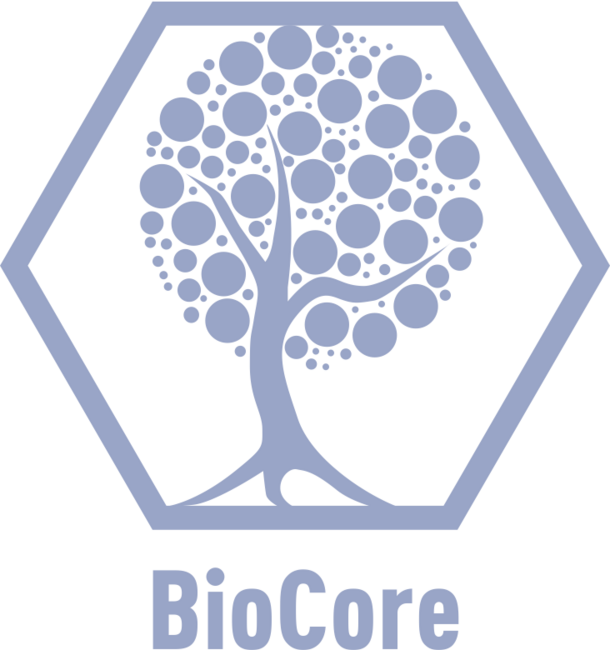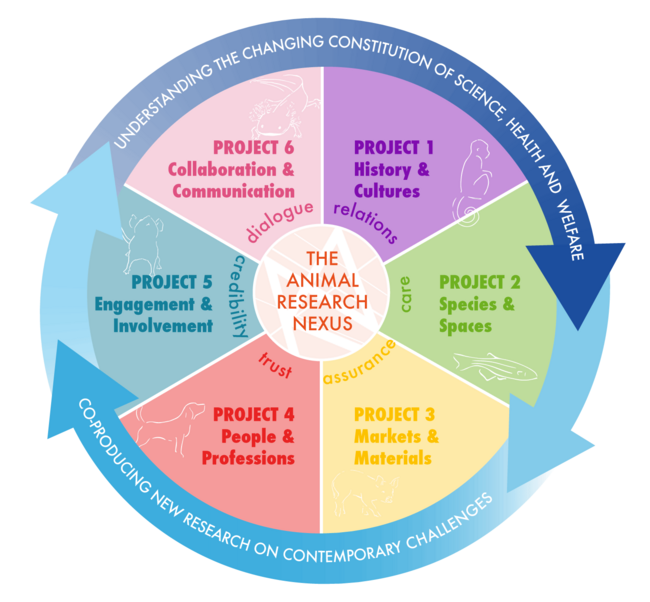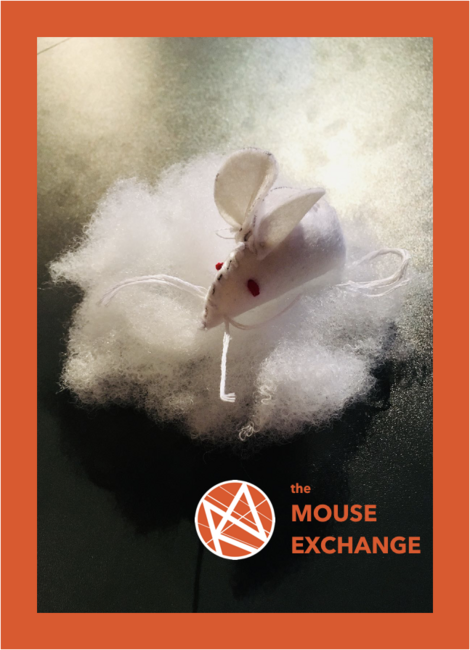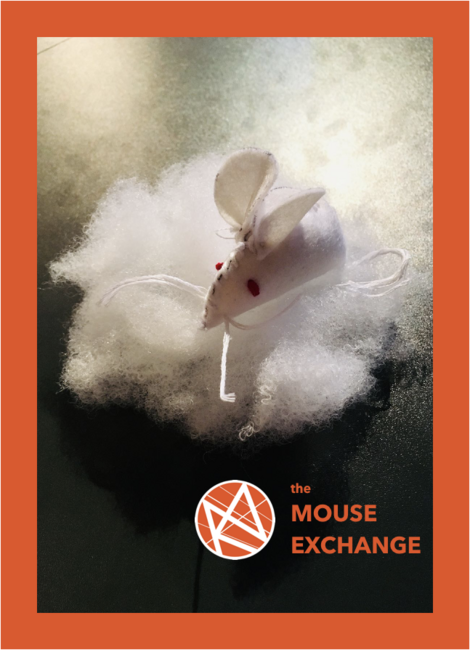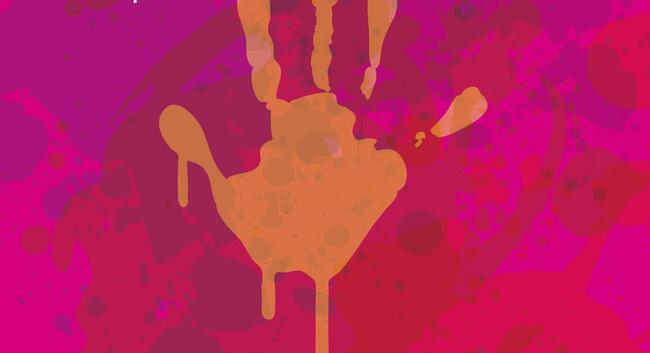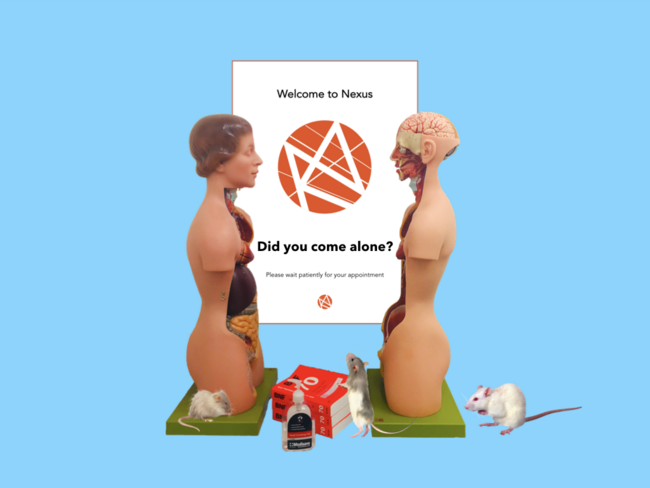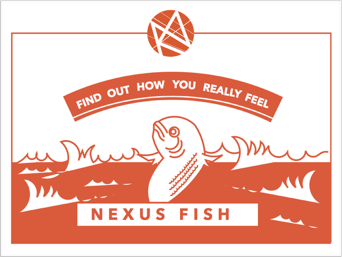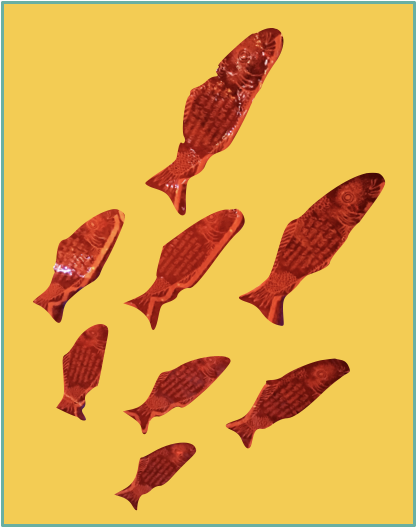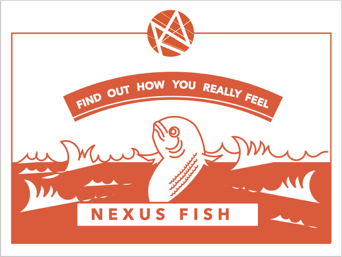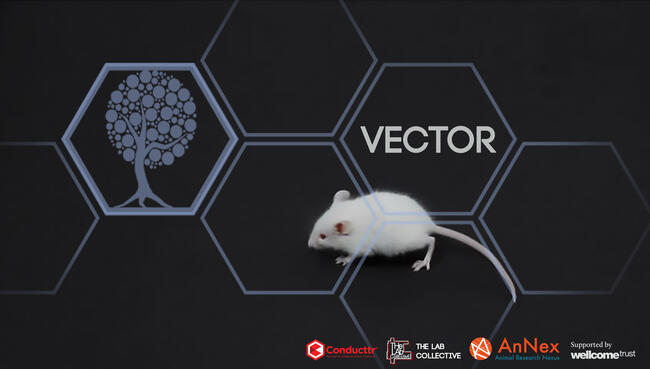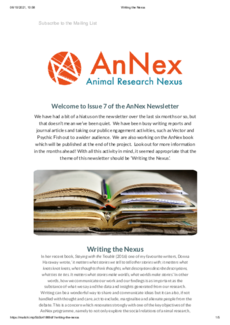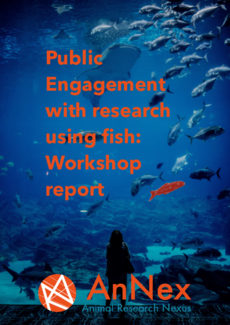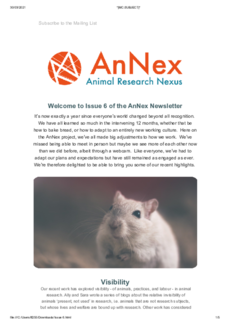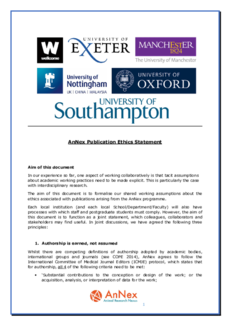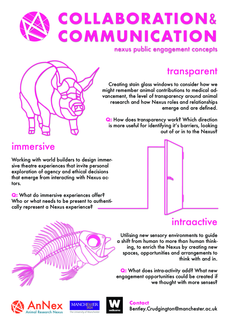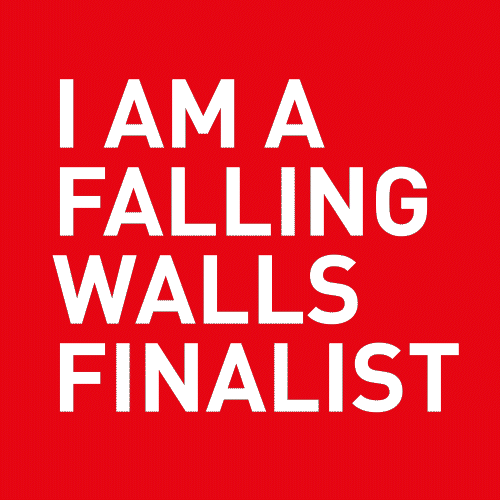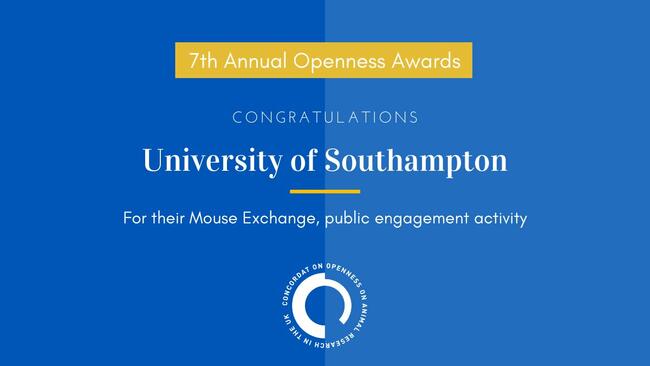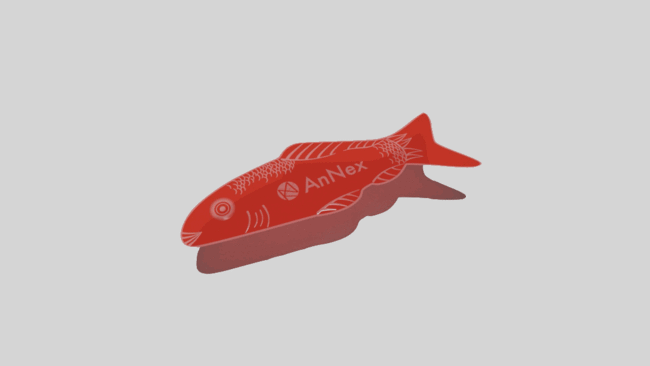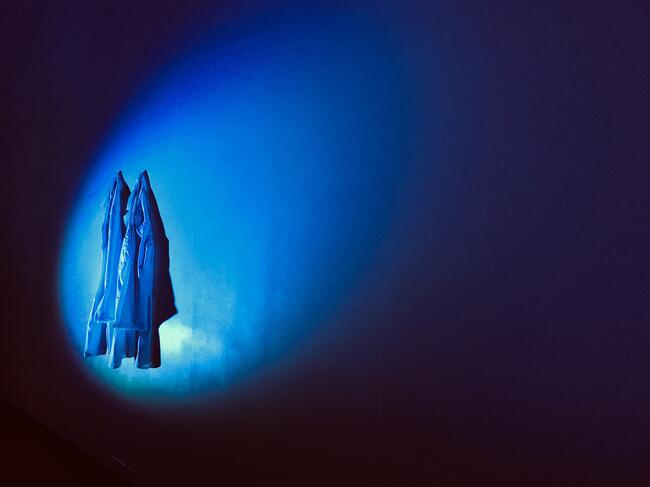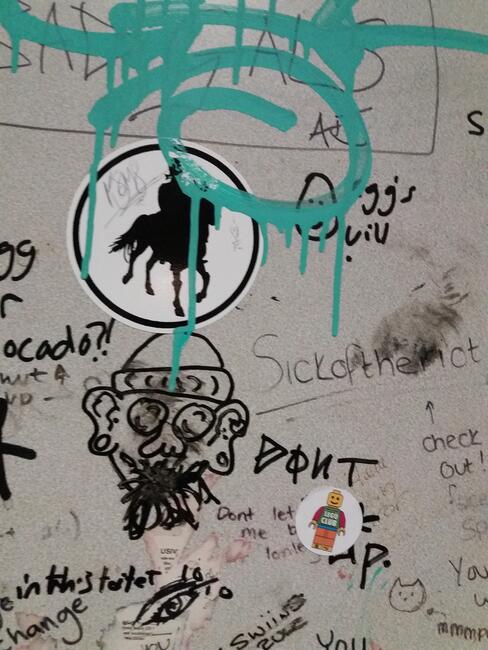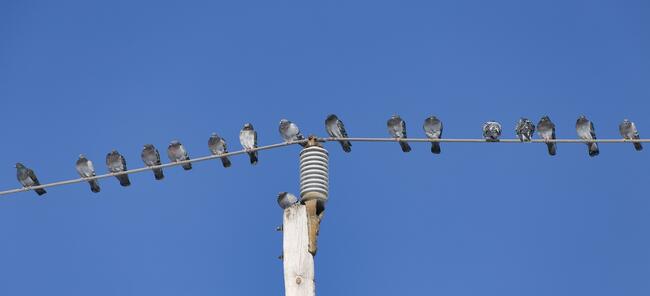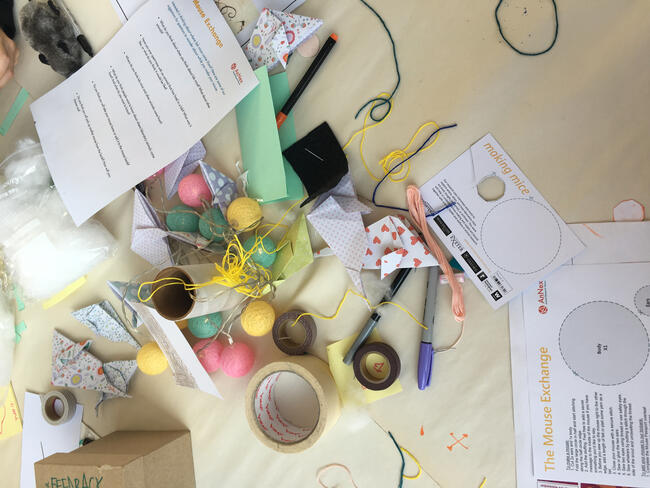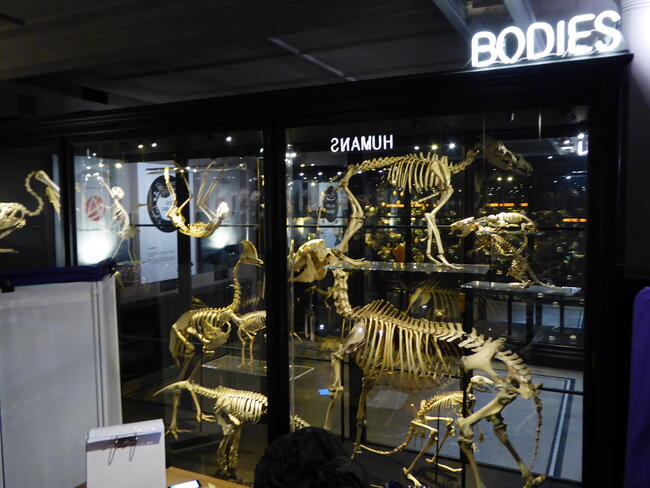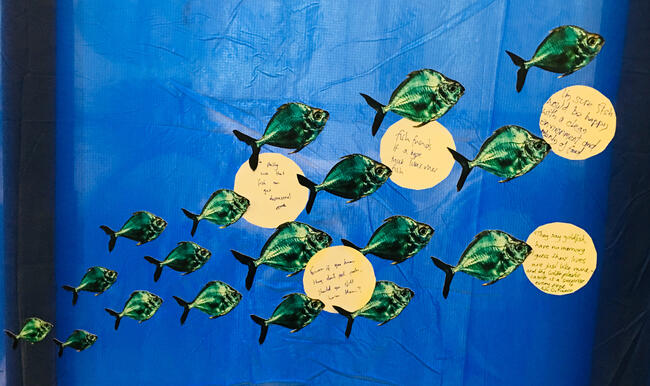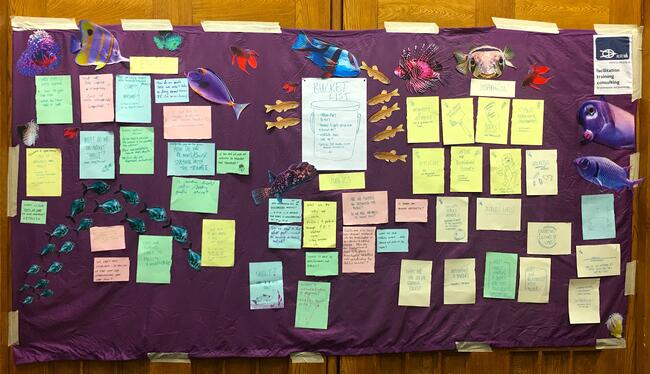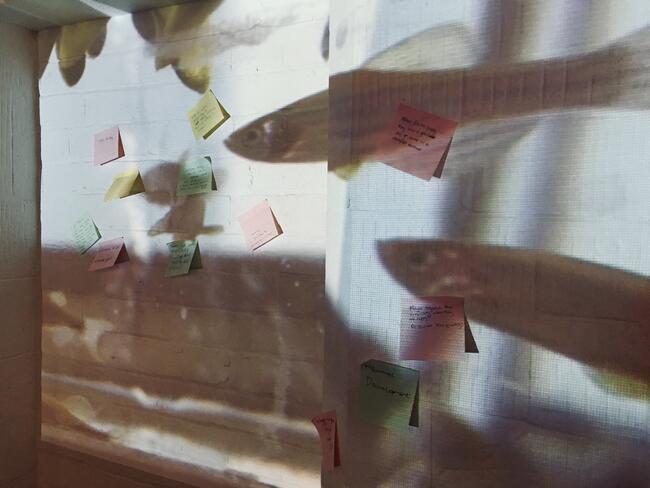Collaboration & Communication
Using the full range of influences wthin the nexus to collaboratively discover emerging challenges for science and society.
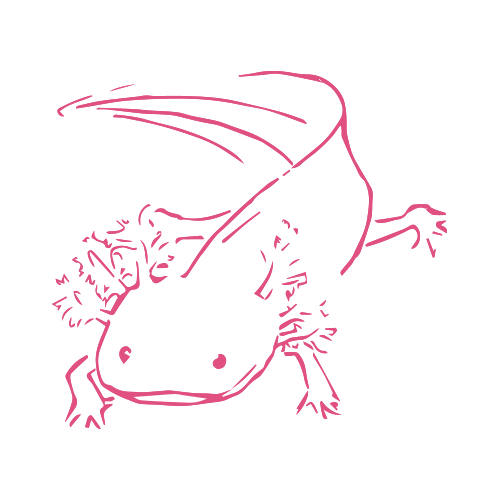
We shall use nexus thinking to:
- Build capacity across the sciences, social sciences and humanities for interdisciplinary approaches to laboratory animal research through conferences, workshops, publications and online, connect different perspectives and generate shared understandings.
- Co-produce new empirical research on the current challenges in animal research, working closely with our advisory committee, project partners and lay-members’ group to shape research questions, analysis and dissemination.
- Create resources, events, and platforms for exchange between policy, practitioners and publics through high-quality communications, community-derived guidelines and training for specialists, and dynamic public engagement activities.
- To appreciate that a framework is not only a map but also a list of obstacles. To be attentive to a fuller range of influences and powers acting on and shaping bodies within the nexus so we can collaboratively face emerging challenges for science and society.
Relevant, tagged site content:
Engagement Activities
Vector is an immersive theatre experience that tasks participants with ethically reviewing the use of animal models in vaccine development.
Events
The Animal Research Nexus Programme is hosting a conference entitled 'Researching Animal Research' on 30th – 31st of March at the Wellcome Collection in London.
For many, talking about animal research remains taboo. As a way of highlighting one of the roles that animal research plays, some have suggested labelling medicines as ‘tested on animals’. But is the act of labelling so simple?
Where do lab mice come from? Where do they end up? Joins us for crafting felt mice to exchange or take home. You can also explore the history, practices, and ideas of care involved in making laboratory mice.
Where do lab mice come from? Where do they end up? Joins us for crafting felt mice to exchange or take home. You can also explore the history, practices, and ideas of care involved in making laboratory mice.
Join researchers from the University of Southampton for a family day suitable for all ages.
“Hi. How are you?” This is a common greeting used to ask about health, but has anyone ever asked you; “did you come alone?” We’ll be exploring these questions in a short, interactive, one-on-one scenario.
Oxford University’s first Open Doors Community Fair, taking place in the Weston Library’s stunning Blackwell Hall in Broad Street on Saturday 10 September between 1pm and 4pm.
Take part in live experiments, chat to scientists and get hands-on with innovative activities based on cutting edge research in science, technology, engineering and maths.
Venue:
Friday 28 September is European Researcher’s night, and for the fourth time Manchester Museum will be hosting Science Uncovered Manchester - a special late opening showcasing Manchester’s finest researchers and their work for an adult audience.
The workshop shall intoduce the Concordat on Openness in Animal Research, explaining its commitments, and the different exceptions around openness.
A new virus is ravaging the planet, infecting animals and humans at a worrying rate; we welcome you to BioCore, a medical research facility tasked with managing this crisis and finding an immunisation to protect our planet.
Publications
Fish are the third most commonly used protected species in research (Understanding Animal Research, 2021) and are increasingly used in initiatives to engage publics with biomedical research. This workshop was convened in order to explore these developments, share experiences, and assess the challenges and opportunities of including discussion of fish welfare in relevant public engagement activities.
Our recent work has explored visibility - of animals, practices, and labour - in animal research.
In our experience so far, one aspect of working collaboratively is that tacit assumptions about academic working practices need to be made explicit. This report aims to highlight our working assumptions about the topic of publication ethics.
This poster presents through provocations from our public engagement approach, which seek to weave in new perspectives, allow new communities to form and meaningfully connect, so we may collaboratively face emerging challenges for science and society together.
Announcements
We are delighted to announce that Vector has been selected as a finalist for Falling Walls Science Breakthroughs of the Year 2021 in the category Science Engagement.
We are so delighted to announce that the Mouse Exchange has been recognised for its public engagement work by winning the 7th Annual Openness Awards, awarded by the Concorda
Blog entry
When you build a world you have the luxury (and burden) of designing everything within it.
On the 21st May, Pru Hobson-West and I dipped our toes into public engagement around animal research at the Nottingham Pint of Science Festival 2019.
March 2019 saw the launch of the AnNex newsletter, a (roughly) quarterly offering to keep stakeholders up to date with the project, and we’ve been deli
There is no qualitative research into public understanding of the origins of research animals, which is a particular area of interest for the Markets and Materials strand.
A directive of the Collaboration and Communication strand of the Animal Research Nexus is to produce dynamic pubic engagement activities that connect different pers
In the Species and Spaces project, we’re exploring people’s perceptions around fish use, sentience, and how these shape and define assumptions around their welfare requirements.
Working within a multidisciplinary research environment provides every member of the AnNex team with unique opportunities to think outside the boundaries of their own discipline and benefit from exposure to the methods and perspectives of other hu
Our approach to research emphasises cross-project collaborations and transdisciplinary thinking. But what does this mean, in practical terms, for the work that we do and for our participants?
The concept of openness is increasingly being used to drive change and shape debates around animal research. However, it is a complicated and nuanced concept, which can be both uniting and dividing in practice.
The way we think about the welfare needs of animals is always conditioned by our prior experiences and preconceptions. This is especially true of fish.
Project partners
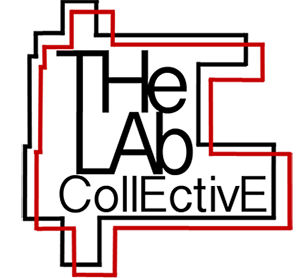
The Lab Collective create interactive, visceral live experiences; treading the line between theatre, game and installation, The Lab Collective empower the audience to collaborate in our performances.
